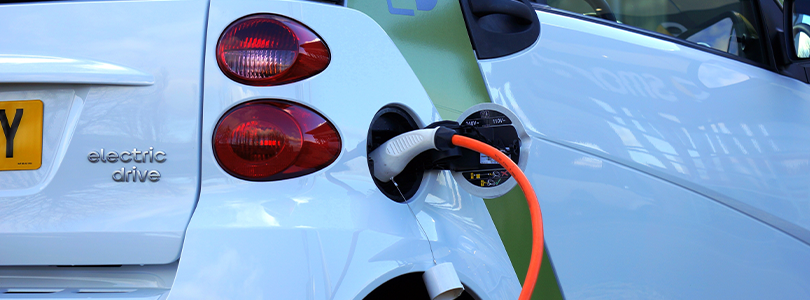The headline story in recent weeks has been the much discussed planned multi-billion pound spend on renewable energy that is set to arrive throughout the next decade, with vast amounts invested in energy storage technology, nuclear power and the UK’s EV charging network.
New Petrol & Diesel Cars Banned From 2030
Prime Minister Boris Johnson announced that new cars and vans powered by petrol and diesel would no longer be sold in the UK from 2030, sparking a new dawn and forming part of a “green industrial revolution.” In the race to clean up motoring, the UK now sits in second place behind Norway whose fossil fuel abolition date is 2025.
As we steer towards a new world of relying on electric vehicles, there are questions around where we will charge our cars and how this energy will be generated in the first place. The government has a ten-point plan including offshore wind power and hydrogen production for industry, transport, power and homes, while there are also plans to invest £1.3 billion in EV charging points and improving charge point infrastructure.
Can the UK energy grid cope with a rise in EVs?
Graeme Cooper, National Grid’s Project Director – Transport Decarbonisation, addressed this question on the National Grid website back in February.
He referred to two key points –
1. Enough capacity exists to cope.
With improved energy efficiency, such as the installation of solar panels, the national peak demand has fallen by 16% since 2002, when the demand for electricity was 62GW. Even if the UK switched to EVs overnight, Mr Cooper said ‘we think demand would only increase by around 10 per cent. So we’d still be using less power as a nation than we did in 2002 and this is well within the range of manageable load fluctuation.’
2. When the demand occurs
The more complicated issue for the National Grid would be when the demand for power occurs, as the majority of commuters head home around 6pm to 8pm to plug in their EV’s at what is already peak time in terms of cooking, heating the home, using appliances and enjoying downtime.
Mr Cooper said of this challenge ‘If we want to provide sufficient infrastructure and energy for EVs as cheaply as possible for consumers, we ideally don’t want to add to that evening peak and need to spread that demand better.’
Future car chargers will need to be ‘smart by design’ so the vehicle will charge, but pause at peak times when demand is high and energy costs are at their peak.

New Consoles Drive Record Broadband Data Use
The UK’s leading internet providers have experienced record broadband use in recent weeks with the new PS5 & Xbox consoles driving demand, as well as the large files being downloaded for fresh releases including the Call of Duty games franchise.
The BBC reported that for BT “broadband traffic peaked at 18 terabits per second (Tbps) – equivalent to delivering about 1,510 hours of high-definition video every second.”
Throughout the lockdown periods, there has been an increased demand for connectivity and power at residential property, whether that is for work purposes, or to meet the rising demands required for continually innovative games consoles. This has demand for energy to power the consoles as gamers enjoy the newest releases, has however been offset with less electricity required for industrial or commercial usage.
Britain Fires up Coal Plants to Meet Electricity Shortfall
All of the ‘Green Economy’ plans outlined are a sign that the UK is heading in the right direction to a cleaner future, but right now electricity shortfalls are still commonplace.
Some of the last remaining coal power plants are still being used to help keep the lights on up and down the country whenever the supply from wind turbines tails off, as seen as recently as Thursday 26th November, where energy generated from coal supplied 6% of our electricity.
The colder weather and slowdown in wind power has meant that power plants in Drax remain operational to provide a cushion of extra supplies when renewable generation levels vary.
The tighter margins have been commonplace in recent months as seen via the National Grids ESO Twitter account –
There are continued tight margins on the electricity system, owing to colder temperatures & varying renewable generation levels over periods w/ higher demand.
— National Grid ESO (@ng_eso) December 5, 2020
While we have enough generation to meet demand, we've issued an electricity margin notice (EMN) for Sunday evening [1/3]
Reliable Power Solutions
If your business depends on power continuity, why not contact Shenton Group to discuss the solutions available to safeguard your power security? Power cuts continually cause issues across the UK, as seen during the last week in Bournemouth, Newport on the Isle of Wight and in Yorkshire.
It pays to have a backup power solution to ensure a reliable energy source, even when there is a disruption with the National Grid. 2020 has caused enough disruption to businesses and organisations already, and our team have been working hard to support clients during the pandemic with more pressure than ever to keep power supplies secure.

